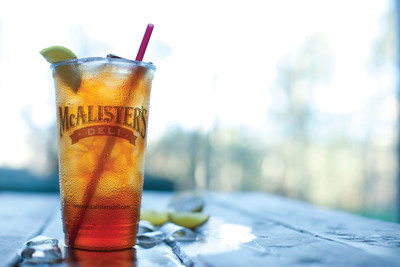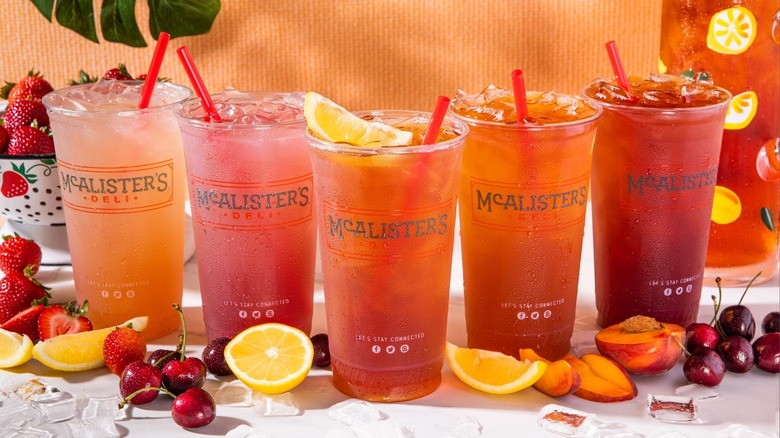Okay, let’s be real. McAlister’s tea is basically summer in a giant cup. But have you ever stopped to think about what’s giving you that sweet tea buzz? Let’s get into the caffeine details…
Caffeine Intake Calculator
Caffeine Check: What’s That Tea Really Doing to You?
- McAlister’s Caffeine Lineup: Their sweet tea packs the biggest caffeine punch. Unsweet tea still has some, but less. And hey, if you’re avoiding caffeine altogether, decaf is always an option!
- Caffeine Comparisons: Turns out a small McAlister’s sweet tea might have about as much caffeine as a can of soda. Coffee usually has more, and energy drinks? Forget about it – those are on a whole other level!
- Your Caffeine Code: Everyone reacts to caffeine differently. Some people get super energized, others get jittery or can’t sleep. It’s worth figuring out how caffeine affects you personally.

Caffeine: The Good, the Bad, and the Science-y
Caffeine is definitely a mixed bag. On the plus side, it can perk you up and improve focus. Studies suggest moderate caffeine intake might be beneficial, but go overboard, and you risk crashing later or having trouble sleeping. Plus, the amount of caffeine that’s considered “safe” depends on your age and health.

More Than Just Caffeine
- Tea Talk: Most McAlister’s teas use black tea, which naturally contains caffeine. Green tea options might exist, offering a milder buzz. Don’t be fooled by fancy flavors – those usually don’t change caffeine levels.
- Sugar Matters: Sweet tea’s a double whammy! Not only do you get caffeine, but loads of sugar, too. That combo can trick your body into feeling more awake than you truly are.
- Check the Source: McAlister’s website or in-store guides should have an official caffeine breakdown. If in doubt, their staff might have the scoop!
Smart Sipping Strategies
If you love McAlister’s tea but want to be caffeine-conscious, there are ways to manage it:
- Size Control: Smaller teas mean less caffeine, it’s simple math!
- Mix it Up: Try half sweet tea, half unsweet tea – a good middle ground. Or blend their tea with lemonade to dilute it further.
- Timing is Key: Avoid caffeine near bedtime if it messes with your sleep. Listen to your body!
Beyond the Buzz
It’s smart to think about the total package when it comes to McAlister’s tea:
- Health Check: Teas packed with sugar aren’t ideal for everyday intake. Check out The American Heart Association’s sugar guidelines: https://www.heart.org/en/healthy-living/healthy-eating/eat-smart/sugar/added-sugars
- What’s Inside: Tea itself can have antioxidants (those are good for you!), but flavorings and tons of added sugar might counteract the benefits.
- Hydration Station: While tea does count towards your fluids, plain water is still the hydration king!
The Ultimate Tea Choice
The best way to handle caffeine comes down to you. Enjoying McAlister’s tea can definitely be part of a healthy lifestyle, just balance it with your caffeine sensitivity. Know your limits, check out caffeine-free options if needed, and above all, savor every sip!

